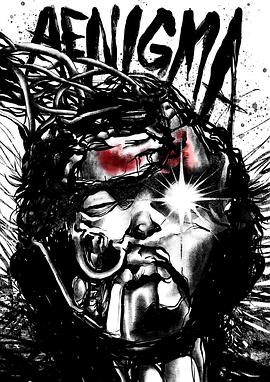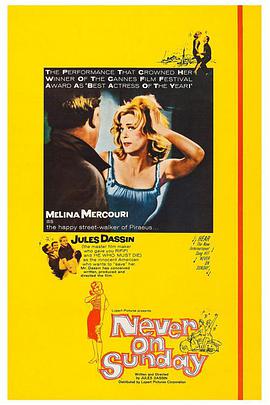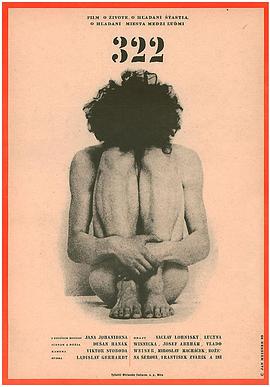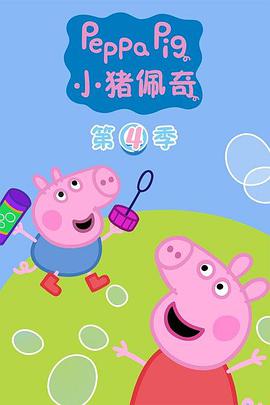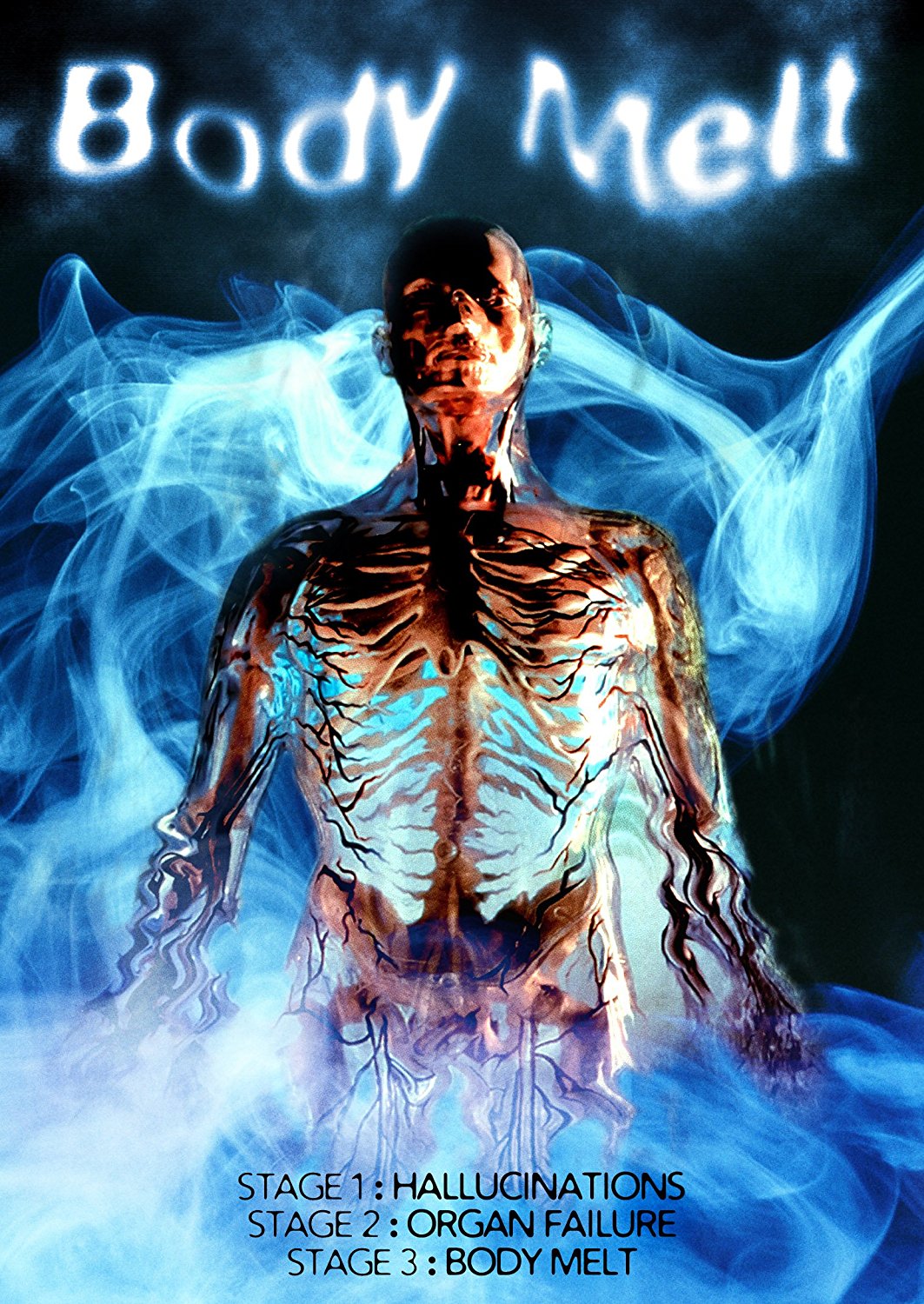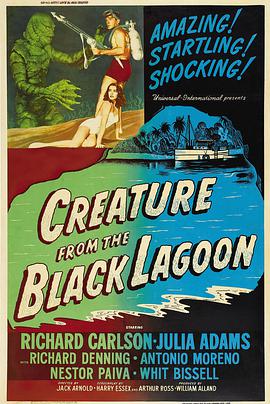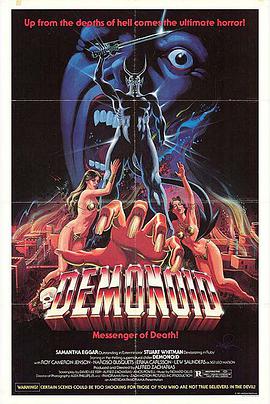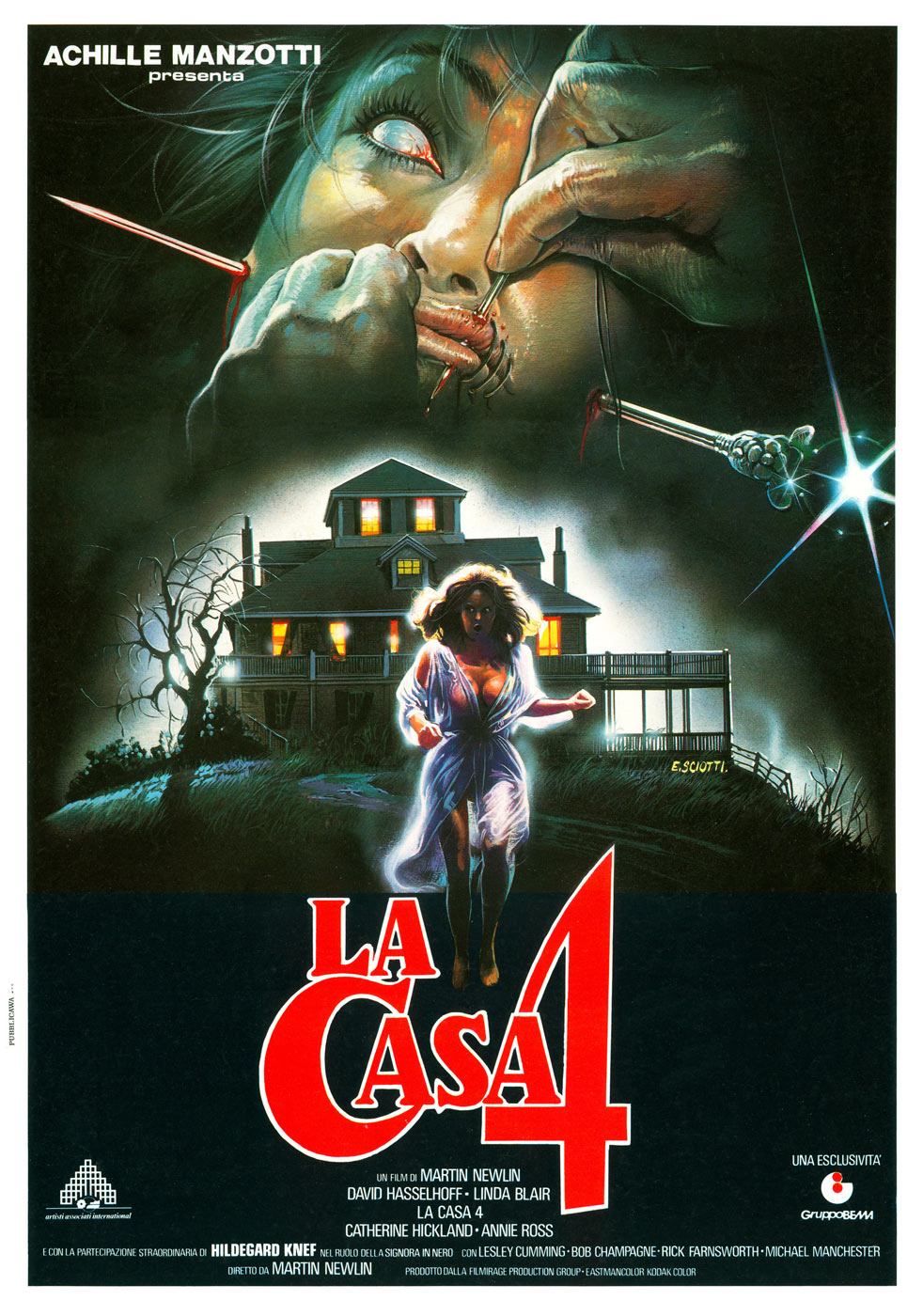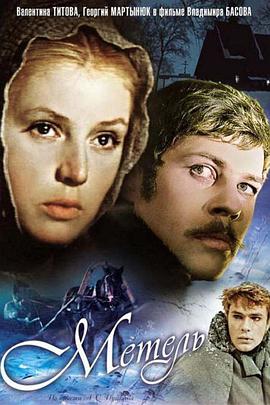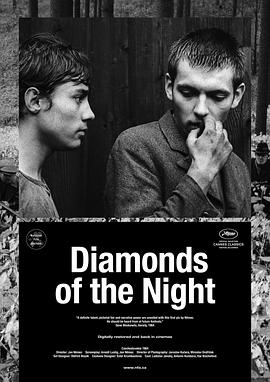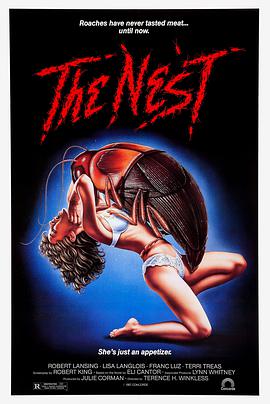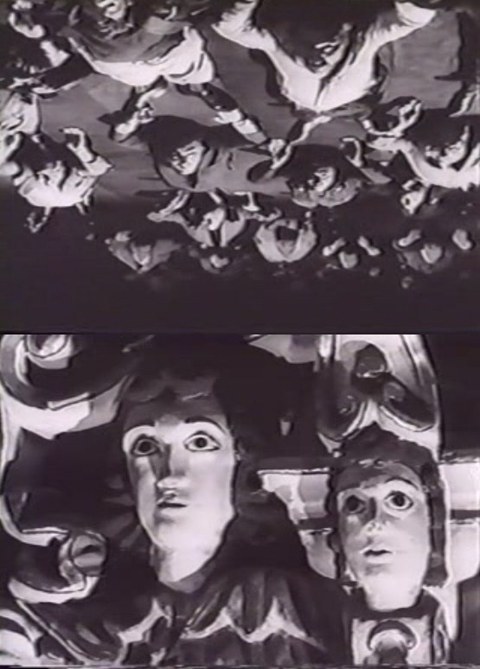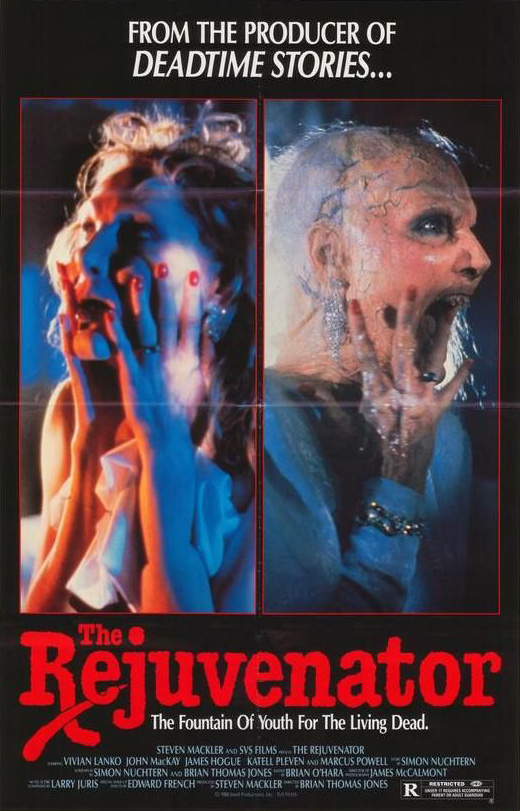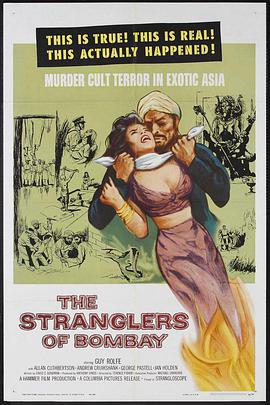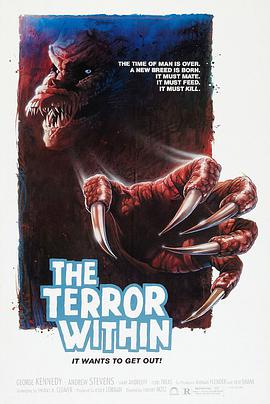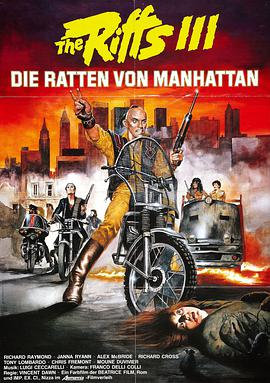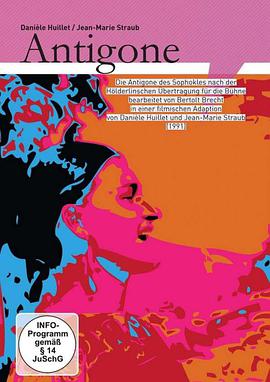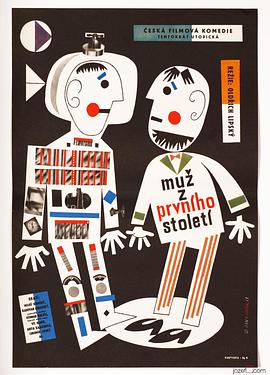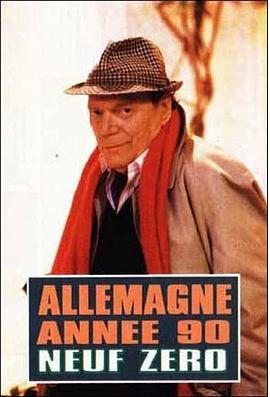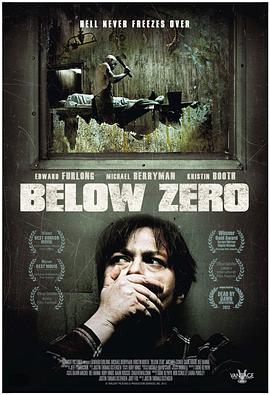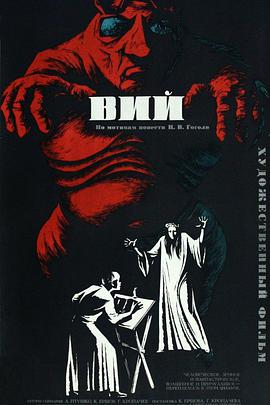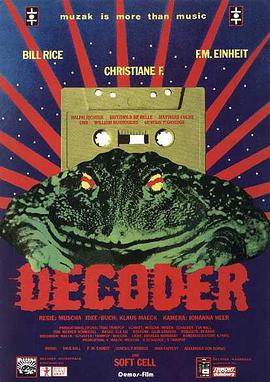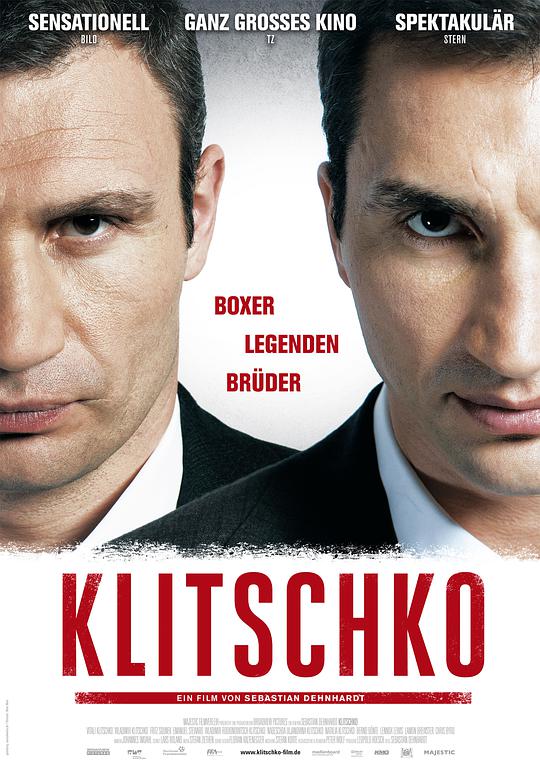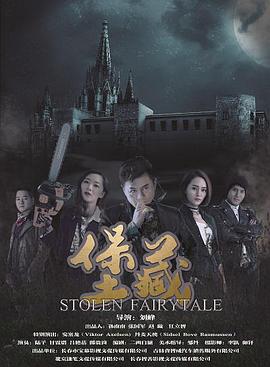as
搜索"as" ,找到 6469部影视作品
导演:
/
杜桑·哈那克
主演:
剧情:
Mannheim-Heidelberg International Filmfestival YearResultAwardCategory/Recipient(s) 1969 Won Grand Prize Dusan Hanák A government official in Czechoslovakia mistakenly believes he has我亲爱的小冤家国语版全集 cancer. He reasons his involvement in clandestine activities during the Stalin administration have fated him to die from a dreaded disease. He searches for inner peace as he feels the guilt of his past transgressions. This film tied for the Grand Prize at the Mannheim Film Festival in 1969.&某某盛望江添肉车扩写lt;br/> Slovak director Dusan Hanak was one of Czech cinema's brightest and best talents of the '60s and '70s, but because of censorship this was not manifest until the late '80s. Dusan made an impact on the film world with his auspicious debut 322 (1969). Though banned until 1988, when it was finally released, it earned international acclaim and the Grand Prix award at the Mannheim Film Festival. Hanak's sophomore effort, the documentary Obrazy Stareho Sveta/Image of an Old World (completed in 1972), was also not released until 1988 and neither was his 1980 film Ja Milujem, Ty Milujes/I Love You, You Love. Only Hanak's 1976 film Ruzove Sny/Ros奇异博士吧百度云资源e-Tinted Dreams passed muster with censors and saw a timely release.
导演:
/
斯坦尼斯拉夫·罗泽维格
主演:
剧情:
In 1961, Stanislaw Rozewicz created the novella film "Birth Certificate" in cooperation with his brother, Taduesz Rozewicz as screenwriter. Such brother tandems are rare in the history of film but aside from family ties, Stanislaw (born in 1924) and Taduesz (born in 1921) were mutually bound by their love for the cinema. They were born and grew up in Radomsk, a small town which had "its madmen and its saints" and most importanly, the "Kinema" cinema, as Stanislaw recalls: for him cinema is "heaven, the whole world, enchantment". Tadeusz says he considers cinema both a charming market stall and a mysterious temple. "All this savage land has always attracted and fascinated me," he says. "I am devoured by cinema and I devour cinema; I'm a cinema eater." But Taduesz Rozewicz, an eminent writer, admits this unique form of cooperation was a problem to him: "It is the presence of the other person not only in the process of writing, but at its very core, which is inserperable for me from absolute solitude." Some scenes the brothers wrote together; others were created by the writer himself, following discussions with the director. But from the perspective of time, it is "Birth Certificate", rather than "Echo" or "The Wicked Gate", that Taduesz describes as his most intimate film. This is understandable. The tradgey from September 1939 in Poland was for the Rozewicz brothers their personal "birth certificate". When working on the film, the director said "This time it is all about shaking off, getting rid of the psychological burden which the war was for all of us. ... Cooperation with my brother was in this case easier, as we share many war memories. We wanted to show to adult viewers a picture of war as seen by a child. ... In reality, it is the adults who created the real world of massacres. Children beheld the horrors coming back to life, exhumed from underneath the ground, overwhelming the earth." The principle of composition of "Birth Certificate" is not obvious. When watching a novella film, we tend to think in terms of traditional theatre. We expect that a miniature story will finish with a sharp point; the three film novellas in Rozewicz's work lack this feature. We do not know what will be happen to the boy making his alone through the forest towards the end of "On the Road". We do not know whether in "Letter from the Camp", the help offered by the small heroes to a Soviet prisoner will rescue him from the unknown fate of his compatriots. The fate of the Jewish girl from "Drop of Blood" is also unclear. Will she keep her new impersonation as "Mary爱神之手sia Malinowska"? Or will the Nazis make her into a representative of the "Nordic race"? Those questions were asked by the director for a reason. He preceived war as chaos and perdition, and not as linear history that could be reflected in a plot. Although "Birth Certificate" is saturated with moral content, it does not aim to be a morality play. But with the immense pressure of reality, no varient of fate should be excluded. This approached can be compared wth Krzysztof Kieslowski's "Blind Chance" 25 years later, which pictured dramatic choices of a different era. The film novella "On the Road" has a very sparing plot, but it drew special attention of the reviewers. The ominating overtone of the war films created by the Polish Film School at that time should be kept in mind. Mainly owing to Wajda, those films dealt with romantic heritage. They were permeated with pathos, bitterness, and irony. Rozewicz is an extraordinary artist. When narrating a story about a boy lost in a war zone, carrying some documents from the regiment office as if they were a treasure, the narrator in "On the Road" discovers rough prose where one should find poetry. And suddenly, the irrational touches this rather tame world. The boy, who until that moment resembled a Polish version of the Good Soldier Schweik, sets off, like Don Quixote, for his first and last battle. A critic described it as "an absurd gesture and someone else could surely use it to criticise the Polish style of dying. ... But the Rozewicz brothers do no accuse: they only compose an elegy for the picturesque peasant-soldier, probably the most important veteran of the Polish war of 1939-1945." "Birth Certificate" is not a lofty statement about national imponderabilia. The film reveals a plebeian perspective which Aleksander Jackieqicz once contrasted with those "lyrical lamentations" inherent in the Kordian tradition. However, a historical overview of Rozewicz's work shows that the distinctive style does not signify a fundamental difference in illustrating the Polish September. Just as the memorable scene from Wajda's "Lotna" was in fact an expression of desperation and distress, the same emotions permeate the final scene of "Birth Certificate". These are not ideological concepts, though once described as such and fervently debated, but rather psychological creations. In this specific case, observes Witold Zalewski, it is not about manifesting knightly pride, but about a gesture of a simple man who does not agree to be enslaved. The novella "Drop of Blood" is, with Aleksander Ford's "Border Street", one of the first narrations of the fate of the Polish Jews during the Nazi occupation. The story about a girl literally looking for her place on earth has a dramatic dimension. Especially in the age of today's journalistic disputes, often manipulative, lacking in empathy and imbued with bad will, Rozewicz's story from the past shocks with its authenticity. The small herione of the story is the only one who survives a German raid on her family home. Physical survial does not, however, mean a return to normality. Her frightened departure from the rubbish dump that was her hideout lead her to a ruined apartment. Her walk around it is painful because still fresh signs of life are mixed with evidence of annihilation. Help is needed, but Mirka does not know anyone in the outside world. Her subsequent attempts express the state of the fugitive's spirits - from hope and faith, moving to doubt, a sense of oppression, and thickening fear, and finally to despair. At the same time, the Jewish girl's search for refuge resembles the state of Polish society. The appearance of Mirka results in confusion, and later, trouble. This was already signalled by Rozewicz in an exceptional scene from "Letter from the Camp" in which the boy's neighbour, seeing a fugitive Russian soldier, retreats immediately, admitting that "Now, people worry only about themselves." Such embarassing excuses mask fear. During the occupation, no one feels safe. Neither social status not the aegis of a charity organisation protects against repression. We see the potential guardians of Mirka passing her back and forth a乔染厉谨言小说mong themselves. These are friendly hands but they cannot offer strong support. The story takes place on that thin line between solidarity and heroism. Solidarity arises spontaneously, but only some are capable of heroism. Help for the girl does not always result from compassion; sometimes it is based on past relations and personal ties (a neighbour of the doctor takes in the fugitive for a few days because of past friendship). Rozewicz portrays all of this in a subtle way; even the smallest gesture has significance. Take, for example, the conversation with a stranger on the train: short, as if jotted down on the margin, but so full of tension. And earlier, a peculiar examination of Polishness: the "Holy Father" prayer forced on Mirka by the village boys to check that she is not a Jew. Would not rising to the challenge mean a death sentance? Viewed after many years, "Birth Certificate" discloses yet another quality that is not present in the works of the Polish School, but is prominent in later B-class war films. This is the picture of everyday life during the war and occupation outlined in the three novellas. It harmonises with the logic of speaking about "life after life". Small heroes of Rozewicz suddenly enter the reality of war, with no experie小说山楂树之恋nce or scale with which to compare it. For them, the present is a natural extension of and at the same time a complete negation of the past. Consider the sleey small-town marketplace, through which armoured columns will shortly pass. Or meet the German motorcyclists, who look like aliens from outer space - a picture taken from an autopsy because this is how Stanislaw and Taduesz perceived the first Germans they ever met. Note the blurred silhouettes of people against a white wall who are being shot - at first they are shocking, but soon they will probably become a part of the grim landscape. In the city centre stands a prisoner camp on a sodden bog ("People perish likes flies; the bodies are transported during the night"); in the street the childern are running after a coal wagon to collect some precious pieces of fuel. There's a bustle around some food (a boy reproaches his younger brother's actions by singing: "The warrant officer's son is begging in front of the church? I'm going to tell mother!"); and the kitchen, which one evening becomes the proscenium of a real drama. And there are the symbols: a bar of chocolate forced upon a boy by a Wehrmacht soldier ("On the Road"); a pair of shoes belonging to Zbyszek's father which the boy spontaneously gives to a Russian fugitive; a priceless slice of bread, ground under the heel of a policeman in the guter ("Letters from the Camp"). As the director put it: "In every film, I communicate my own vision of the world and of the people. Only then the style follows, the defined way of experiencing things." In Birth Certificate, he adds, his approach was driven by the subject: "I attempted to create not only the texture of the document but also to add some poetic element. I know it is risky but as for the merger of documentation and poety, often hidden very deep, if only it manages to make its way onto the screen, it results in what can referred to as 'art'." After 1945, there were numerous films created in Europe that dealt with war and children, including "Somewhere in Europe" ("Valahol Europaban", 1947 by Geza Radvanyi), "Shoeshine" ("Sciescia", 1946 by Vittorio de Sica), and "Childhood of Ivan" ("Iwanowo dietstwo" by Andriej Tarkowski). Yet there were fewer than one would expect. Pursuing a subject so imbued with sentimentalism requires stylistic disipline and a special ability to manage child actors. The author of "Birth Certificate" mastered both - and it was not by chance. Stanislaw Rozewicz was always the beneficent spirit of the film milieu; he could unite people around a common goal. He emanated peace and sensitivity, which flowed to his co-workers and pupils. A film, being a group work, necessitates some form of empathy - tuning in with others. In a biographical documentary about Stanislaw Rozewicz entitled "Walking, Meeting" (1999 by Antoni Krauze), there is a beautiful scene when the director, after a few decades, meets Beata Barszczewska, who plays Mireczka in the novella "Drops of Blood". The woman falls into the arms of the elderly man. They are both moved. He wonders how many years have passed. She answers: "A few years. Not too many." And Rozewicz, with his characteristic smile says: "It is true. We spent this entire time together."
导演:
/
Fabrizio,Laurenti
主演:
剧情:
A pregnant woman is taken back to the house of her husband's mother. There she begins to have strange nightmare about her child and step-family. For the husband and mother are 谁有a网actually reincarnated lovers who were burned at the stake for practicing witchcraft. She must soon escape from their clutches or have her child sacrificed to Satan.
导演:
/
弗拉基米尔·巴索夫
剧情:
十七岁的玛利亚(瓦莲京娜·季托娃 Valentina Titova 饰香蕉鱼在线视频)是衔着金汤匙出生的千金小姐,从小过着养尊处优的富足生活。这样的她,偏偏爱上了一穷二白的青年弗拉基米尔(奥列格·维多夫 Oleg Vidov 饰),这段门不当户不对的恋情自然收到了玛利亚家人的强烈反对,可这对恋人的真爱战胜了一切,他们台湾中文娱乐决定私奔。 哪知道在私奔当夜,当地下起了暴风雪,到处都是白茫茫的一片,在恶劣的天气中,弗拉基米尔迷路了。当他最终到达了和玛贪欢高清在线观看利亚约定的汇合地点时,已经是第二天早上了,那里早已经不见了心上人的踪影。伤心的弗拉基米尔加入了部队,并且最终在战场上结束了短暂的一生。
导演:
/
Rubén,Gámez
剧情:
This is one of the best Mexican short movies ever. You could probably imagine the Mexican idiosyncr回复术士的重启人生漫画 无修asy, read some history books, but you will find a big difference and experience the feeling of the post-revolutionary age of Mexico with this film. Labor unions, the invasion of large scale and global fore色戒 高清下载ign companies, the mother's love, the Mexican habits descriptions are part of this master piece. Adding the emotion of Jaime Sabine's narration voice in all the allegoric signs and metaphors. The problem is that is almost impossible to get a copy or to find it in Mexico, probably in Europe (I've 天海翼写真heard it was restricted by the Mexican government in that period).
导演:
/
泰伦斯·费希
剧情:
A murderous religious cult is way-laying travellers and stealing goods in nineteenth cen今夜花开小说全文免费阅读tury India. As the disappearances mount and trade becomes difficult, the British East India Company is forced to act. But they give the job to an upper-class officer completely out-of-touch with the country rather than the obvious candidate who has been in India for years and well understands the people and culture.
导演:
/
达尼埃尔·于伊耶,让-马里·斯特劳布
主演:
剧情:
法国导演情侣组合斯特劳布-于伊耶与1991年将索福克勒斯的希腊悲剧《安提戈涅》搬上银幕,文本上采用了德国浪漫主义诗人荷尔德林的著名翻译,版本上则依照布莱希特40年代的改编,拍摄地点是西西里岛上塞杰斯塔的一座古罗马剧院遗址,拍摄时阳光明媚。影片日产高清卡1卡2卡无卡背后文本的多层厚度赋予了本片以极强的现时性:就在拍摄当年的夏天,美军对伊拉克发起了第一轮进攻。这是一部关于教育公民不服从的作品。
导演:
/
Alvaro,Passeri
剧情:
五个年轻人巴比、麦克、小桃、朱丽和玛格趁着假期开着小船出海游玩,却因为大意而被搁浅在海上,屋漏偏逢连夜雨的他们又遇上暴风雨,在大雨倾盆的情况下,他们找到了一艘并没有人的豪华游艇,以为找到了桃花源,在里面明日世界下载饮酒作乐,没想到可怕的危险就隐藏在这座豪华游艇里。游艇好像是一个大的实验室,里肉动漫无修在线播放面有奇奇怪怪的远古鱼类化石。巴比看到实验台上的白色粉末,尝了一下,以为是毒品。而后,玛格被会飞的鱼咬伤,他们才意识到问题的严重。麦克仔细研究了电脑里的资料,发现原来这些鱼都是吃了受污染的浮游生物后发生了异变。可此时已经为时已晚,除了麦克其余四人都被感染侮辱mm小游戏。游艇即将爆炸,这些怪物也即将被消灭,只有麦克跳海逃出。谁知怪物并没有死,麦克也没有逃生。
导演:
/
让-吕克·戈达尔
剧情:
Characterized by deconstructivism and philosophical references and by bri漂漂亮艺术馆efly exposing the go不要了好深戳到肚子了od, bad, and ugly periods of the country's history, this post-modern film portrays the abstract need for guidance of Germany 七月与安生 迅雷下载following the fall of the Berlin Wall.
导演:
/
Justin Thomas Ostensen
剧情:
创作进入瓶颈的知名作家杰克(sm冰恋爱德华·福隆 Edward Furlong 饰),为了写出足够恫吓人心的恐怖之作,在经纪人的安排下来到了冰天雪地的山区。单亲妈妈佩妮(克莉丝汀·布丝 Kristin Booth 饰)带着儿子科尔接到了杰克,并将其带回丈夫曾经经营的屠宰场。佩妮风趣幽默,屠宰场内的摆设也足够阴森。谁知刚刚还有说有笑的佩妮,突然一转身将杰克锁在屠宰室内,声称是受经纪人所托,要在接下来的五天内逼迫杰克写出合格出色的剧本。 郁闷的编剧身不由己,只得就地取材,官运最新章节将所处的环境和遇到的人和事编入故事中。创作似乎有条不紊地进行着,但意想不到的是也即将发生……
导演:
/
Amir Ukrainitz,Sivan Magazanik
主演:
剧情:
第64届欧洲歌唱大赛由上我和僵尸有个约会2粤语届冠军以色列承办,具体举办地为以色列首都特拉维夫。本届大赛共有41个国家参赛,将于5月14、16日进行两一一电影院场半决赛,18日进行总决赛。
导演:
/
Sebastian DiNatale
主演:
/
钱信伊
剧情:
喜剧演员、《管家婆资料大全管家每日秀》记者、《摘金奇缘》演员钱信伊推出自己的首个 Netflix 喜剧特辑《亚洲笑星闹美国》。钱信伊出生于马来西亚,在曼彻斯特、新罕布什尔、新加坡和澳大利亚长大,他大谈特谈自己迄exo t今为止在美国的旅程。从评估消费主义的影响,到亚裔美国总统的办事效率有多高,钱在《钱信伊:亚洲笑星闹美国》中分享了他认为使美国变得强大的真正原因。《钱信伊:亚洲笑星闹美国》将于 2019 年 12 月 17 日在 Netflix 面向全球上线。
导演:
/
康斯坦丁·叶尔绍夫,格奥尔基·克罗帕乔夫
主演:
剧情:
The movie follows the original tale in a somewhat loose fashion, but manages to retain the majority of the images and action. A seminary student must survive three nights in prayer guarding the deceased witch maiden while she, along with an army of佛歌大悲咒下载 hellish demons, try to lure him out of his Holy Ring of Chalk.

